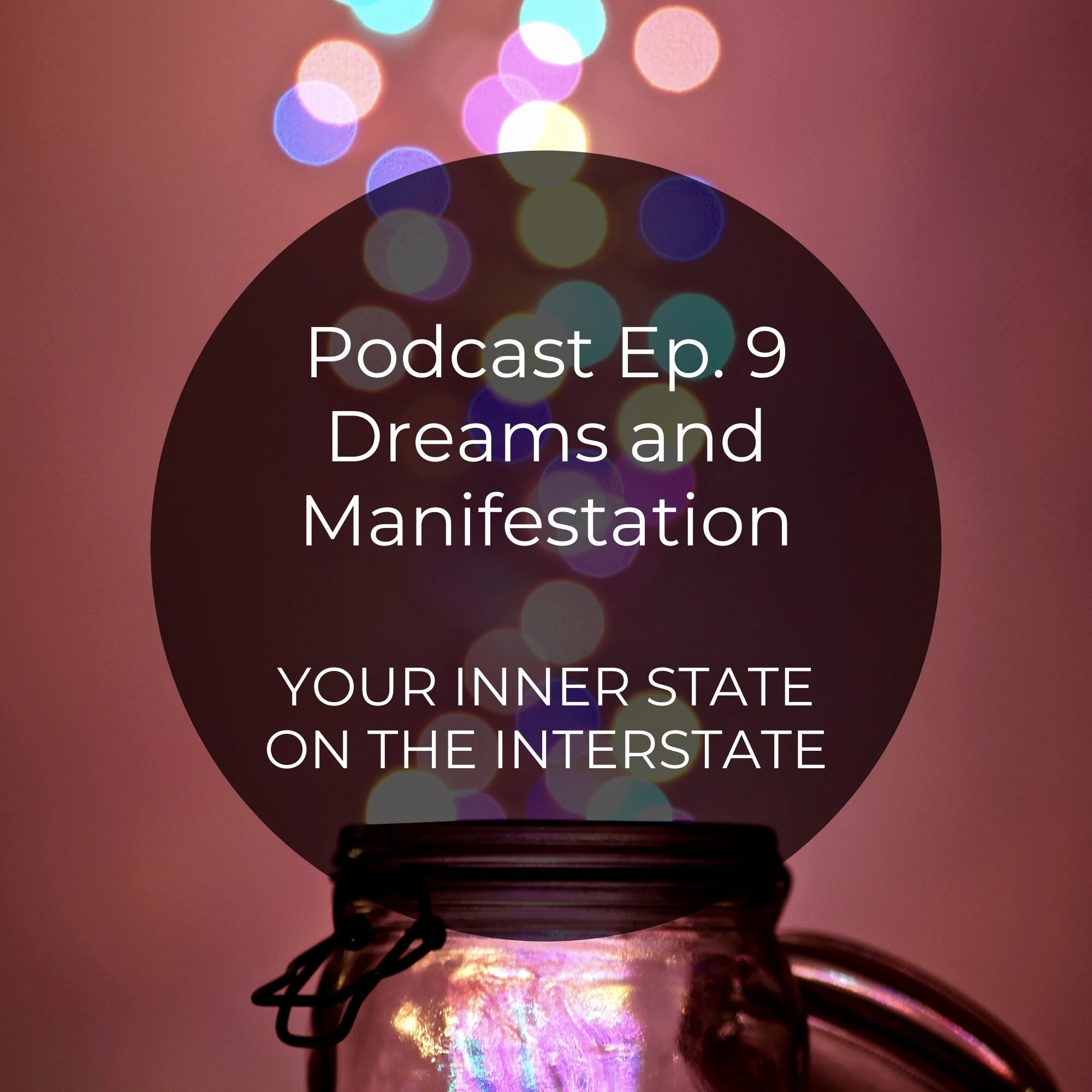Episode 8 Podcast Show Notes - Exploring the Dreamworld
This episode talks about dreaming, some tips on how to remember your dreams, and how we can use our dreams to point to what our subconscious mind is telling us. We also play "the cube game" where we get to explore our imagination to see what it's telling us about how we see ourselves and our lives.
Excerpt from this episode: "... I like interpreting other people's dreams and helping them to find out what it really means for them. So how do you work with dreams and interpret them? It's a good question. So for me, it's really about tapping into the subconscious or the unconscious mind and what is already there. And it's about understanding that the way that our brain interprets dreams, real experiences, imagination, memories, it all gets recalled from the same place when we're thinking about it in a way. Our brains don't really know the difference between our dream world life, our waking world life, our daydreaming, imagination, life, and memories, because they all essentially get stored in the same place. I find that tapping into our dreams can be a way a tool to tap into our subconscious mind. And if we realize that we have an emotional reaction to things in waking life, it can be the same thing in our sleeping life. Like those same trigger points, they come up because there's some unresolved places in our minds, and basically, our brains and our minds are trying to problem solve, even in our sleep is trying to sort things out and make sense of things and also brings up maybe some unresolved things in our lives that in our day to day we might push it away. But sometimes..."
Tips for Lucid Dreaming:
Reality Tests or Reality Checks: Throughout the day, perform simple things to establish that you’re awake. Then do those same things in the dream world to be able to test whether you’re dreaming or not. A few examples of reality checks you can do include looking at your hands, flying, pinching your nose,
Resist the urge to move as you’re falling asleep. You might notice that as you are falling asleep, you feel an urge to change positions or roll on the other side, and part of this is so your brain can test that you’re ready to sleep. If you resist the urge to move, then it will tell your brain that you are asleep while you’re more awake than you normally would.
Use a dream journal or some other ways of helping you to recall your dreams more. Record ANY bits and pieces you remember from your dreams and it will increase over time.
Certain foods and plants are supposed to help with dreaming. Anything with tryptophan, vitamin b6, blue lotus flower, supplements which help with acetylcholine synthesis, etc.
Meditate more. The more awareness you bring into your waking life, you can also bring into your sleeping life. Create some sort of practice that works for you.
Increase the space of the in-between asleep and waking time. Let yourself stay in bed longer after you wake up without thinking too much. Listen to a yoga nidra meditation, such as this one:
The Cube Game
Here’s a brief summary of the cube game: https://psychology.wikia.org/wiki/The_Cube_(game)
Thanks for joining!





